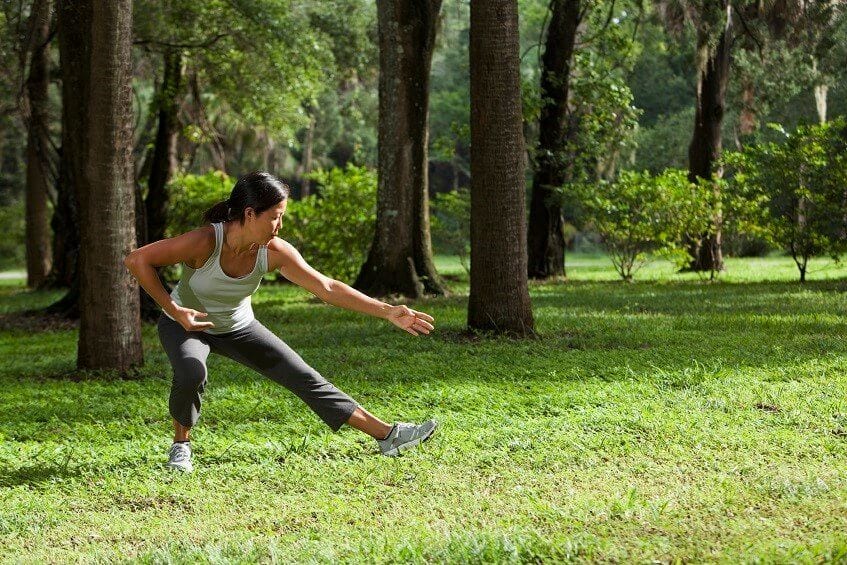“If you ask what is the single most important key to longevity, I would have to say it is avoiding worry, stress and tension. And if you didn’t ask me, I’d still have to say it.”
− the late comedian George Burns, who lived to 100
Saturday, April 16, is National Stress Awareness Day. If you’re too busy to celebrate on Saturday – relax! The entire month of April is Stress Awareness Month. You’ve got plenty of time to incorporate some easy tips to reduce stress into your busy life.
Why stress management is essential for overall wellness
Chronic stress and illness are inextricably linked. When strong emotions go unchecked, good health quickly erodes. Stress is responsible for 75 to 90 percent of all doctor visits. Acute stress is the leading cause of sudden death, especially in young, healthy people with no evidence of heart disease.
If that’s not incentive enough to get your stress levels under control, consider these effects of chronic stress:
- Causes heart attacks and arterial disease
- Contributes to high blood pressure
- Causes oxidative damage to your body’s tissues and leads to inflammation
- Depletes your adrenal glands, causing exhaustion
- Accelerates aging
- Harms your immune system
- Shrinks brain tissue, causing memory loss and concentration problems
- Triggers migraines and headaches
- Increases your odds for catching a cold or flu
- Affects your blood sugar levels, leading to insulin insensitivity and weight gain
- Obstructs digestion
If you think a career in holistic medicine is something you would like to pursue, contact us and speak to an admissions representative to get started on your new journey!
5 enjoyable ways to manage your stress
Our sympathetic nervous system’s “fight or flight” response engages when we react to physical and emotional changes in our equilibrium. Chinese medicine holds that excessive emotional stimulation or suppression causes the imbalance of qi that leads to illness. Add these stress reducers to your wellness arsenal this April:
1. Acupuncture targets specific pressure points in the body, releasing blocked energy. Headaches, high blood pressure, muscle tension, and pain are alleviated as the body’s natural painkilling endorphins are released. The blood and lymphatic fluids circulate more efficiently, bringing fresh oxygen to body tissues and eliminating waste products. The stress hormone cortisol decreases, blood pressure lowers, heart rate slows, and your muscle tissue relaxes.
2. Tai Chi uses rhythmic patterns of movement performed in slow motion to help you shift your focus gently into your body. You quiet the chattering, stressed out mind and flow mindfully from one position to the next with coordinated breathing. Fully aware of every movement, you become more centered, balanced, and connected to your body. Tai Chi reduces stress, lowers blood pressure, relieves chronic pain and increases energy.
3. Aromatherapy employs essential plant oils that have a calming effect. Some of the best for stress include lavender, chamomile, jasmine, geranium, peppermint, and lemongrass. Place the oils in a diffuser or a spray bottle and allow them to permeate the air as you inhale deeply. Essential oils applied topically are also potent stress relievers.
4. Massage relieves tension in the body, clears the mind, and increases oxygen flow, boosting the immune system. Not only are massages healing, the emotional power of touch is profoundly therapeutic. When aromatherapy is combined with massage, the benefits are enhanced.
5. Meditation lowers stress and blood pressure as the mind is stilled and the body relaxed. You can meditate anywhere, even walking. Just one minute of breathing slowly and deeply from your stomach calms you and clears your mind.
Lastly – never underestimate the importance of a nutrient-rich diet, generous amounts of sleep and sufficient sunlight on your skin every single day.
If you’re passionate about helping others maintain a healthier, more balanced and stress-free lifestyle, learn more about becoming a student in one of PCOM’s acupuncture, massage therapy or holistic nursing programs.
Featured Posts:

